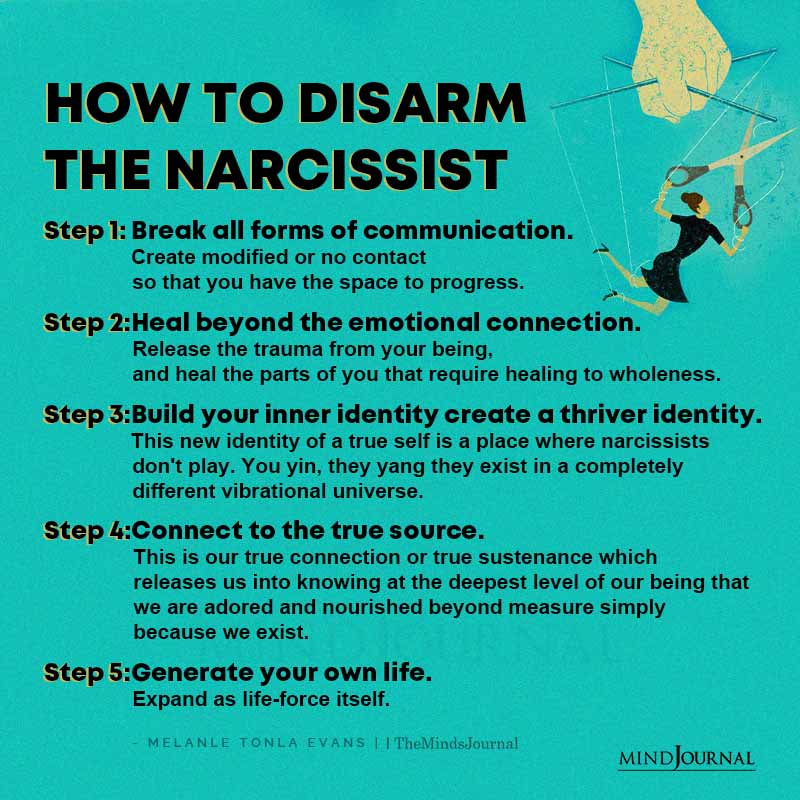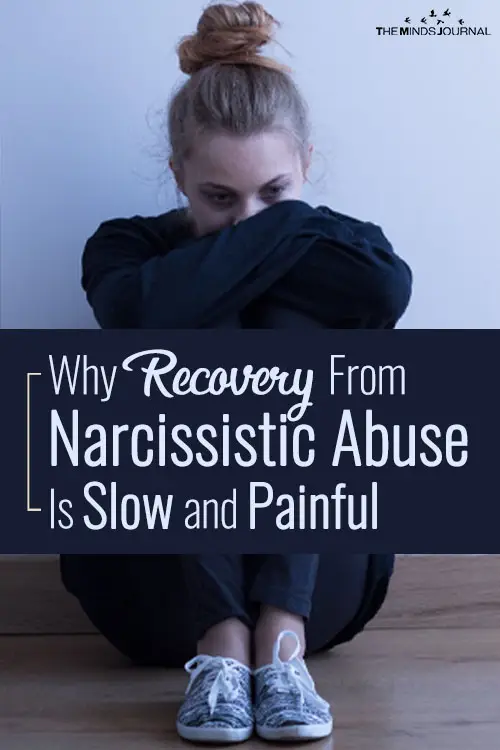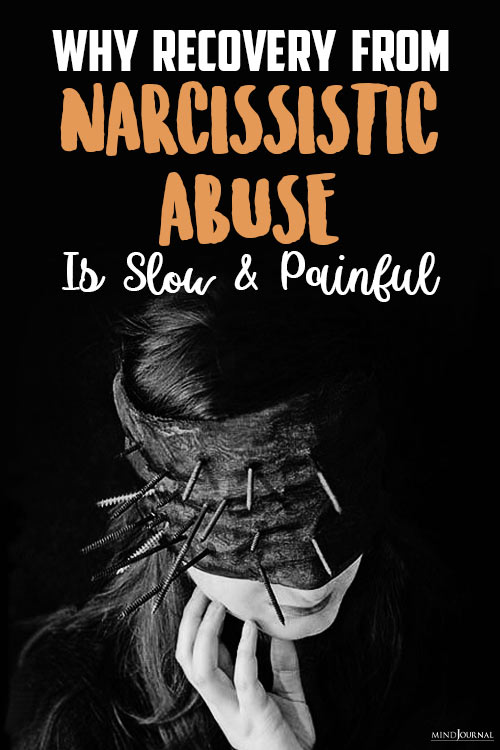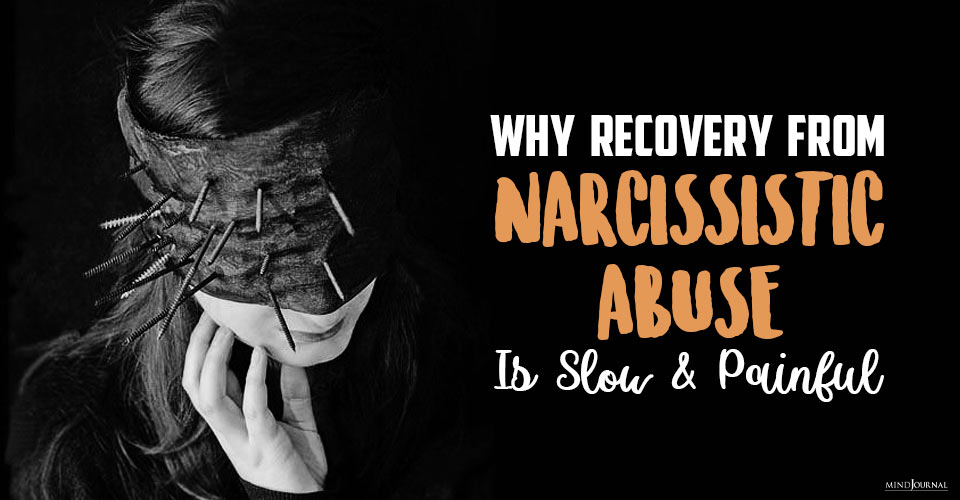Recovery from Narcissistic Abuse is slow and painful. Narcissists thrive only for themselves. They are completely self-absorbed, self-motivated, feel entitled to everything they want to do and have no compassion and no remorse. They lack empathy completely, and being a narcissistic abuse survivor can be painfully traumatic.
Narcissists and Sociopaths operate in similar ways. They use you as prey. And they target empathic people and people with soft boundaries.
They get close to you, build up your trust, mimic your emotions, take full advantage of your vulnerability and compassion, get you on your own, and build a relationship where you begin to need them and depend on them.
They groom you and are highly clever at this. They are emotional vampires, and narcissists are dangerous, abusive people. Then once they are done with you, or you figure them out, or leave them, it all changes.
Related: Narcissistic Abuse Recovery: Here’s How To Get Started
The narcissist’s worst nightmare is being exposed.
They will resist this at all cost, lie, deceive, deny and manipulate those around them. They will act outraged at what you are doing to ‘them’ and if all else fails, will manipulate those around them into believing ‘they ‘are the victim.
Not once in all of this, do they actually care about their ‘supply’. Which is Narcissistic supply.
All the fake emotions they have shown, all the words they used to ‘reel you in’, all the “I love you’s” and “I care deeply about you” and “I want to help you’s” etc … were all fake. They didn’t mean a word of it.
Once exposed, you see their real motives and their real feelings about you.
Then, they are hot on the pursuit of ensuring no one believes their ‘supply’ and will set out with the help of their supporters, to make you seem crazy, a liar, or evil.

The narcissistic smear campaign begins, and the victim is lied about – as the narcissist tries to gather allies.
All along, they have no concern about how they have ripped your heart out, stomped all over it and the emotional pain you are left in.
They have no empathy for the hurt they caused, just a complete sense of entitlement, and a complete lack of self-insight. And a complete lack of courage to face what they have done.
And complete lack of love, care, compassion, or empathy.
It takes a long time to recover from narcissistic abuse. It’s so hard for many victims, to just watch the narcissist carry on enjoying their lives, whilst the victim grieves, is confused, is hurt, and cannot understand how they can do this, after all, they had said and done.
It’s so hard for victims to understand how they were not loved at all, just used and abused. Chewed up and then spat back out of the devil’s mouth and left to deal with all the hurt and pain. And deal with others, who now believe a whole pack of lies about you too.
Recovery is slow and painful, especially when it is multiple narcissist/sociopath abusers and especially when the abuse is still raw, or triggers are occurring often.
Related: How To Handle Narcissistic Abuse
Recovery includes grieving, twice…
1. Grieving the person you thought they were, who you loved and believed loved you too, and then…
2. Grieving the real person they are… the narcissist, who never cared and used you as supply, with no remorse.
Matt 7:6 Do not give what is holy to dogs, and do not throw your pearls before swine, or they will trample them under their feet, and turn and tear you to pieces.
I will never forget this verse.
Want to know more about recovery from narcissistic abuse? Check this video out below!
For more information on Complex Trauma, Complex Post Traumatic Stress Disorder, and PTSD, which all can result from narcissistic abuse, please see my Website @ https://www.healingfromcomplextraumaandptsd.com/.
~ Lilly Hope Lucario
All blogs written by Lilly Hope Lucario and subject to © Copyright Protected.
All rights reserved. No part of any entry/blog may be reproduced, distributed, or transmitted in any form or by any means, including photocopying, recording, or other electronic or mechanical methods, without the name of the author – Lilly Hope Lucario and a clear link back to this blog – https://healingfromcomplextraumaandptsd.wordpress.com/
This includes adaptations in all forms of media.










Leave a Reply
You must be logged in to post a comment.